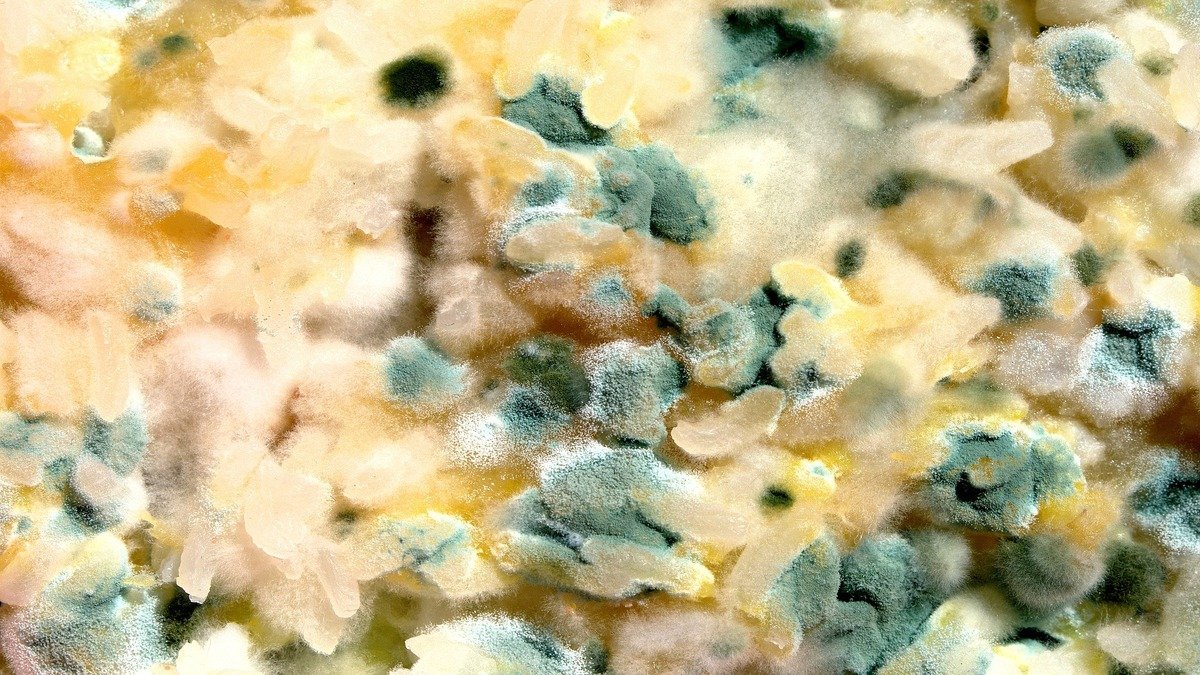Is It Bad to Have Mold in Compost?

Mold is one of the most annoying organisms out there. It can grow on your food, in your water bottle, and even in a corner of your cabinet, causing frustration and negative health effects.
But is mold also bad for your compost? Or is it a helpful part of the system? Mold in compost – that’s exactly what we’re going to talk about in today’s post.
What is the white stuff in compost?
The white stuff commonly found in compost is white mold – it mostly grows on wood particles. Its presence indicates that your compost is decomposing well. Other types of mold that can be found in compost include:
- Yellow mold – this type of mold is fluffy and bright yellow when in bloom. Since it helps break down waste, it’s normal and healthy for it to be in compost heaps
- Green mold – this mold is an indication that there’s too much moisture in your compost
- Bird’s nest fungus – this type of mold looks like small birds’ nests and helps break down woody waste
Is it bad to have mold in compost?
No, having mold in compost is good and healthy. It actually indicates that composting is going well. Like bacteria, mold breaks down your food and other waste. Mold and other fungi are particularly good at breaking down tough materials.
Will mold ruin my compost?
Too much mold in compost pile can ruin it, especially green mold. After all, maintaining a healthy compost pile is all about maintaining balance.
Why is my compost moldy?
Too much mold is a sign that your compost isn’t aerated and is too wet. So if you notice that your compost heap is mushy, has lots of molds, attracts too many bugs, and emits an odor, it’s time to add some dry brown materials and aerate it.
Remember, you need to mix in the brown materials properly to break up any sludgy chunks. Also, remember to water the compost pile less often than usual and cover it when it rains
Is moldy compost bad for plants?
No, the mold in compost isn’t bad for plants. It can just add a lot of moisture to the area around your plants. So if you use this kind of compost, ensure you don’t overwater your plants, especially during the rainy seasons.
When you do have to water the plants, do so near the roots.
How do you get rid of mold in compost?
Unfortunately, there’s no way to completely get rid of the mold in compost. All you can do is reduce the amount of mold by keeping the pile aerated and relatively dry.
Can you put moldy stuff in compost?
With a few exceptions, you can generally put moldy stuff in your compost pile. The moldy stuff can even add helpful microorganisms to your compost heap and make it work more effectively.
However, you should never add moldy stuff to a bokashi composter. These composters actually ferment what is in them instead of composting it.
Another instance where you should be wary of adding moldy stuff to compost is when you’re vermicomposting. Some types of molds can make your worms sick.
It’s also not advisable to add moldy dairy, fish, or meat to your compost or worm bin. These products usually attract pests to your compost, whether they are moldy or not.
How to safely handle moldy compost
While mold may not harm your plants, it can harm you and your pets. As such, you should be careful when handling mold in compost or waste. Some safety tips you can implement include:
- Wear a mask before you turn your moldy compost – this will keep you from inhaling mold spores
- Don’t turn your compost when it’s windy – the wind can blow mold spores into your nose and even your home if the windows/doors are open
- Keep your pets away from your compost – mold can quickly make them sick and even kill them
- Avoid touching your face when handling compost
- Wash your hands after handling compost
- Be extra careful if you have mold allergies, respiratory conditions, or are immunocompromised – you can even have someone else turn your compost for you
- Keep your house clean, dry, and aerated to make it harder for mold to sprout and spread in it
Final thoughts
For the most part, the occurrence of mold in compost is natural, good, and even expected. So as long as there isn’t too much of it, you have nothing to worry about – it can even make your compost better.
